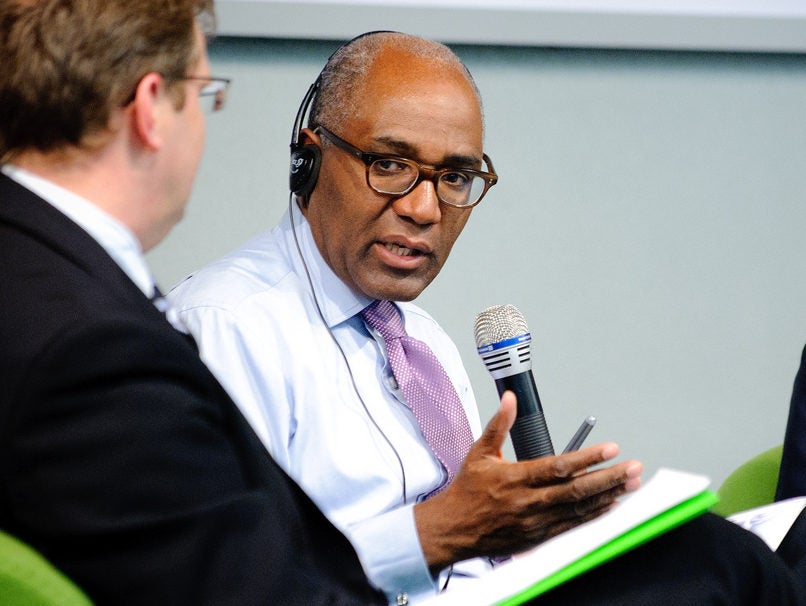
Former broadcast journalist and equality commission boss Trevor Phillips said that diversity in the UK media can be generously described as “tokenistic” and that its failures have affected the knife crime debate.
Philips, previously chairman of the Equality and Human Rights Commission, said TV is “self-congratulating” regarding its diversity drive, but these efforts lag way behind what the US is doing to increase representation.
Phillips said a lack of minority representation in decision-making roles at broadcasters has diminished the knife crime debate and steered it clumsily away from issues of race.
He said that coverage of race either presents black people as the “exotic other”, or takes an ironic swing at prejudice and, in efforts to avoid accusations of racism, ends up doing “the opposite”.
Speaking at the IPPR’s Oxford Media Convention, the former politician said there has been progress made since his beginnings in journalism, but he was still critical of the efforts of British media companies.
He said: “Our efforts, I would be generous to describe them as tokenistic. The gap between the self-estimation in this field and its actual reality is probably wider than in any other sector I know.
“TV particularly thinks of itself as trying really hard, but it hasn’t really begun. At least the bankers know they are useless.”
Phillips said this lack of diversity has led to an industry-wide awkwardness and mishandling of race issues, which filters into news coverage.
“The lack of diversity at the top of the industry has created a very specific thing, particular in the arena of race.
“The broadcast industry completely lacks confidence and that means it does stupid things and makes big mistakes.
“The coverage of race is really two things: anthropological, or ironic – let’s try and unsettle the bourgeoisie with people of colour.”
This awkwardness in the coverage of race in the media has led, Phillips said, to a skewed presentation of knife crime and the demographic factors behind the rise in violence.
He said: “No journalist has mentioned race as a factor. It means debate is focused on police numbers. This is about race. This is about people of colour.”
Phillips (pictured, right) said that knife crime predominantly affects communities with low white populations and larger refugee populations.
He said Oxford University is not inaccessible, but unappealing to people from minority backgrounds. “The problem is not that Oxford doesn’t like black students, it’s that black students don’t like Oxford,” he said.
Phillips welcomed the scholarships offered by grime artist Stormzy, but said that it was “only two kids” out of a multitude.
Picture: Heinrich-Böll-Stiftung/Flickr
Email pged@pressgazette.co.uk to point out mistakes, provide story tips or send in a letter for publication on our "Letters Page" blog
